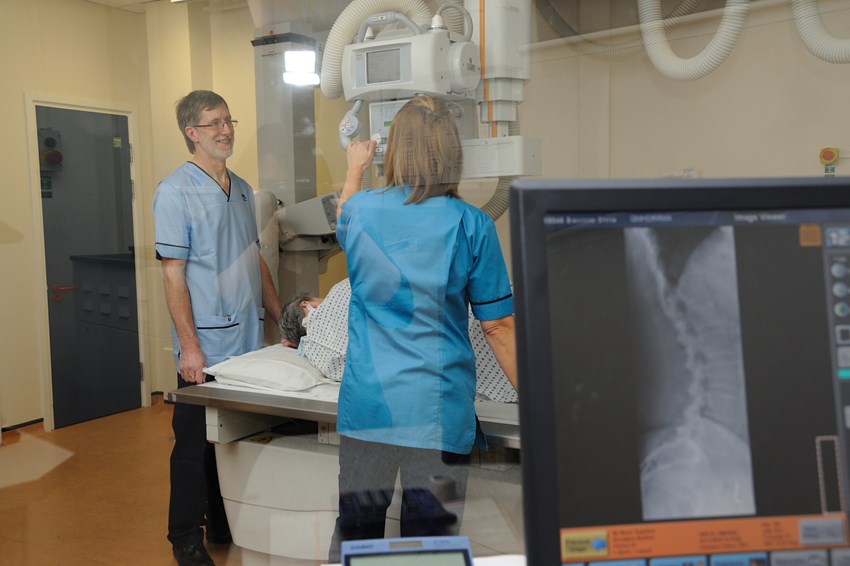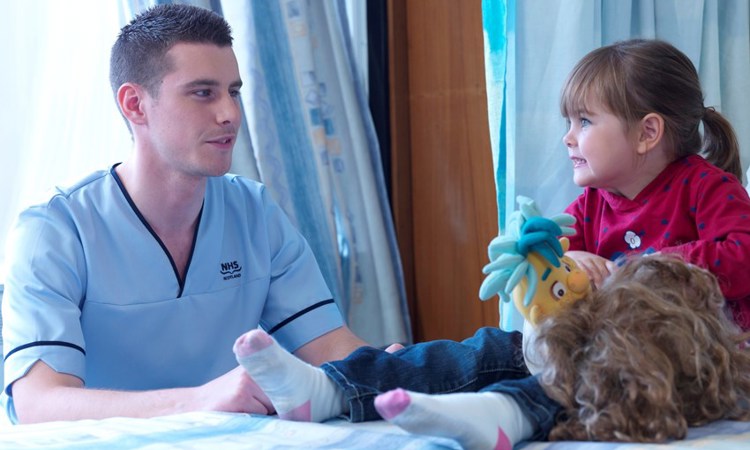How to become a radiography support worker
You can apply for a vacancy on our recruitment website or do a Modern Apprenticeship to beome a radiography support worker in the NHS.
What is a radiography support worker?
There are 2 types of radiographers in the NHS. Diagnostic radiographers use imaging to help diagnose a disease or medical condition that's causing a patient’s illness. Therapeutic radiographers use radiation to treat cancers and tumours.
Radiography support workers assist diagnostic and therapeutic radiographers. They help to administer treatment to patients, and process digital images used to diagnose those who are ill.

Starting your career as a radiography support worker
Choosing subjects at school
To become a radiography support worker, you need a good standard of education. There are no specific entry requirements, but useful subjects include:
- Science
- English
- Maths
Speak to your guidance teacher about subjects offered at your school.

Work placements and volunteering
You may find it helpful to get some healthcare experience by doing a work placement or volunteering. You’ll get training, increase your knowledge, and learn new skills. This could help you when applying to university, college or a new job with NHSScotland.
Modern Apprenticeships
A Modern Apprenticeship will help you get the knowledge, skills, and experience you need to reach your career goal.
Learn about the Modern Apprenticeship in Healthcare Support.
All Healthcare Support Modern Apprentices study 3 mandatory units:
- communication
- health and safety
- learning development
You'll choose your remaining units from the clinical pathway options for radiography.
Get to know the role
As a radiography support worker, you'll assist diagnostic and therapeutic radiographers to diagnose and treat patients.
Tasks include:
- assist and reassure patients
- process digital images
- help radiographers with procedures, such as biopsies
- prepare patients for treatment
- identify and report changes in a patient's condition
- help maintain equipment and report faults
- update patient records
- book appointments
You’ll also be expected to keep up to date national guidelines and policies, such as ionising radiation regulations.
You'll need these skills:
- caring
- communicating
- creativity
- motivating people
- problem-solving
- relationship-building
Radiography support workers work with other healthcare professionals, including:
- diagnostic radiographers
- therapeutic radiograhers
- medical physicists
- medical physics clinical technologists
- doctors
- nurses
You could work in:
- accident and emergency departments
- hospital outpatient departments
- operating theatres
Learning and development
When joining the NHS, you will work through the Mandatory Induction Standards. These standards are designed to help you work safely and must be completed within the first 3 to 6 months of employment.
You may also be encouraged while in the post to work towards further education qualifications. These may include:
Career development
Getting experience as a healthcare support worker can be very helpful if you decide you want to go to university and study to become one of the following:
Navigate page

Explore careers
Discover the skills and qualifications you’ll need for each role and what the work will be like.
Explore careers
Help with recruitment
We'll guide you through the recruitment process, from applying online to interview preparation.
Help with recruitment